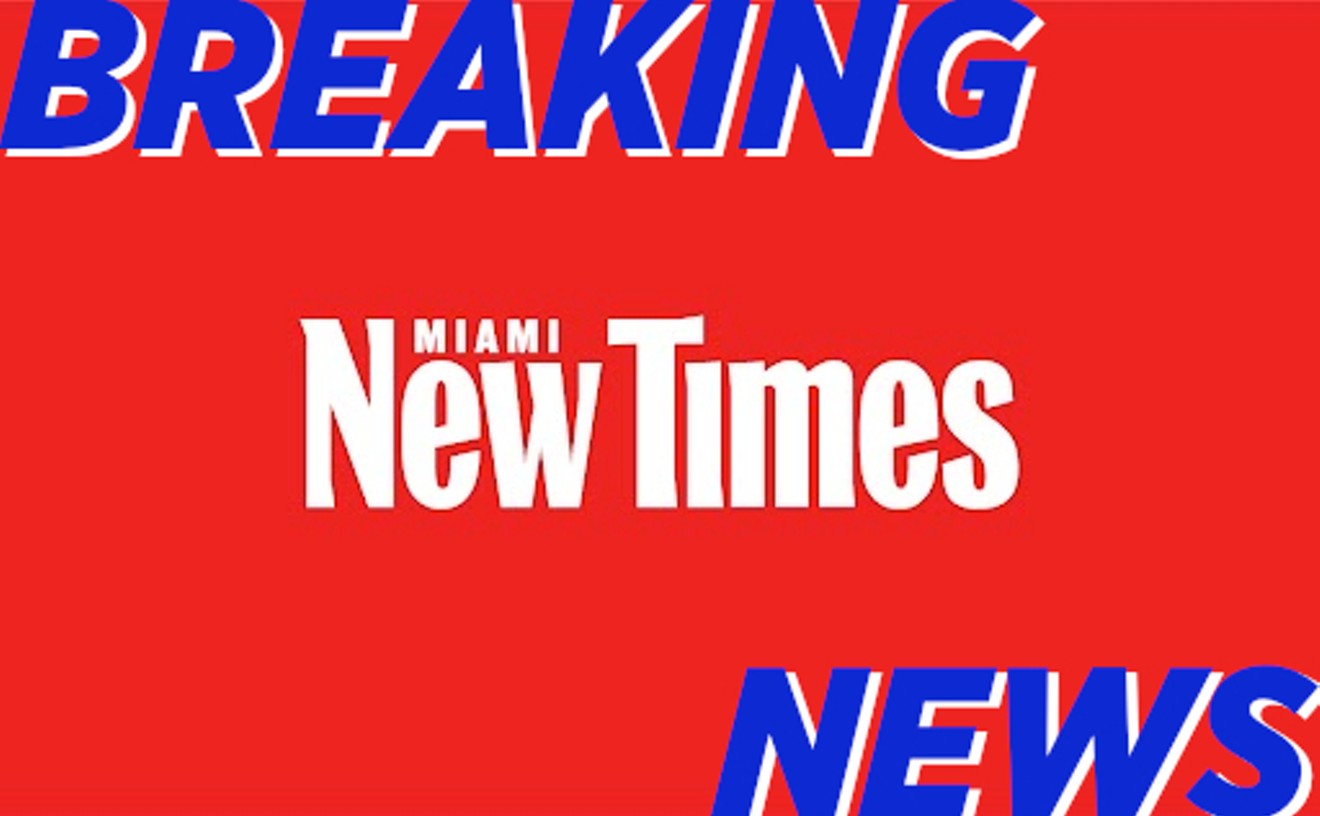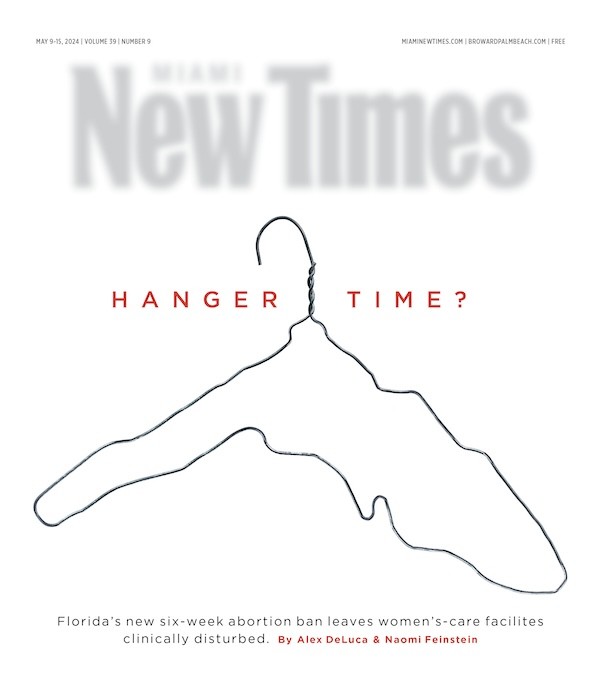In February, Miami Mayor Tomás Regalado proposed a law banning Airbnb-style rentals in two-thirds of his city, stunning the company, which says it previously had a cordial relationship with city officials.
Regalado claimed for months that the crackdown was designed to protect residents from living next to de facto hotel rooms. But according to emails New Times obtained, the real story might have been that Regalado was working to protect hotel industry profits: An email chain that began last November reveals that a close version of the ordinance Regalado proposed was forwarded to him from a hotel industry lobbyist.
In January, New Times reported that the ordinance Regalado proposed, which would have banned Airbnb in "suburban"-zoned city districts (more than two-thirds of Miami) was clearly copied-and-pasted from an ordinance Fort Lauderdale passed in August 2015. The language was nearly identical; in fact, the City of Miami even forgot to change a few dates and lines from the original Fort Lauderdale copy.
Now emails confirm that Miami officials literally copied-and-pasted the law — on the hotel industry's behalf. On November 30, a lobbyist with the Jorge Luis Lopez government-affairs firm emailed a copy of Fort Lauderdale's ordinance to Miami officials. Lopez's law firm represents the Greater Miami & the Beaches Hotel Association.
"As we discussed, here’s Ft. Lauderdale’s Short Term Rental Ordinance which has been in effect since November 2015," lobbyist Mayra del Rio wrote. "Please print a copy for the Mayor and have him call Jorge as soon as he can to discuss."
The city eventually passed a reworded crackdown in March, which Circuit Court Judge Beatrice Butchko temporarily threw out in April after Airbnb hosts sued. During those court proceedings, Butchko questioned whether different emails the mayor sent hotel industry lobbyists showed "bias" toward big-name hotel owners. Airbnb has also criticized Regalado for taking $75,000 in donations from hoteliers, though the sum was a small portion of the mayor's overall campaign haul.
In response, Regalado told New Times today he "did meet once with the hotel industry and once with Airbnb" and eventually chose the anti-short-term rental law because he believes "that this legislation serves better the residents" of the city.
An Airbnb spokesman declined to comment. But the American Hotel & Lodging Association, the national hotel lobby, has developed an action plan to thwart Airbnb's growth by persuading local municipalities to regulate the service out of town. That plan listed Miami as one of the five major markets in "critical" need of an Airbnb ban.
Two months after their initial email correspondence, del Rio emailed back to check in, and confirmed that the lobbying firm had been asking Regalado to crack down on short-term rentals.
"Please let me know if the Mayor has made any progress on this," del Rio wrote. "I believe he had spoken with Jorge about his own ordinance. Let me know if we should set up a call or meeting."
Regalado then replied he wanted the law read at a meeting in February.
"I have requested a place holder in the agenda of the city commission for the first meeting in the month of February," he wrote. "I have requested from the city attorney to work as to mirror the Fort Lauderdale ordinance. I thank you for the information since this is an issue that affects the quality of life of our residents."
Del Rio then replied that she would "pass the word along to Jorge. If you need any supporting documentation or information from our end please let me know and I will get it to you as soon as possible."
That version of the ordinance was later pulled, but a different Airbnb crackdown eventually passed despite multiple Airbnb hosts showing up at a March 23 commission meeting to ask the city to reconsider. That law allowed the city to sue Airbnb hosts who rented properties illegally; Judge Butchko ruled one month later that the law violated a state rule banning local cities from regulating short-term rentals.
During those proceedings, Butchko brought up the mayor's dealings with Lopez, the hotel lobbyist. In addition to the email chain New Times obtained, Butchko also pointed out that Regalado had been forwarding statements from Airbnb hosts directly to the hotel lobby. Butchko said that showed the city was biased toward hotel interests.
The fight within the City of Miami is a microcosm of the larger battle over short-term rentals across Miami-Dade County, a hot tourism market that the sharing company wants to sink its teeth into. Short-term rentals have long been illegal in residential Miami Beach, and that city last year began issuing new, $20,000 fines at people caught violating city law. The county, however, reached a deal to issue resort taxes on Airbnb rentals. Some residents in Miami-Dade worry that, absent strict regulation or full-scale bans, local neighborhoods could morph into de facto hotel zones, given the demand for cheap hotel rooms across Miami.
Airbnb also maintains a large lobbying presence at the national and local levels and has bulked up its government-affairs teams in response to major pushback from entrenched hotel interests. The company likes to portray itself as a small guy fighting giants, but the app was valued around $31 billion in 2016. In comparison, the Hilton Hotels Group, a publicly traded company, has a market capitalization (the total value of its stocks) of just $20 billion, while Marriott has a market capitalization of $38 billion.
The hotel industry has maintained it's been forced to lay off workers and cut prices as Airbnb has risen to prominence, raising concerns that the sharing economy could be cutting away work for already-stressed low-level hotel employees such as housekeepers. But Airbnb maintains this is a ruse perpetrated by the Big Hotel industry in order to push out a competitor — in fact, unlike what Uber has done to the taxi industry, hotel industry profits have continued to rise despite the increase in home-sharing. (Airbnb representatives have also previously told New Times they're happy to work with Miami municipalities to "properly" regulate the service in the city, but they say full-scale bans aren't necessary.) Airbnb also maintains that its service helps local property owners make a few extra thousand dollars per year in income.
"To clarify, the Fort Lauderdale ordinance was served by the law department. After deliberations, the law department considered not to use it," Regalado told New Times today. "Instead, what went to the city commission and was approved was a resolution reaffirming the zoning code of the city that short-term rentals are not allowed in residential [areas, but] we believe that this legislation serves better the residents so that the ordinance was never voted [on] or consider[ed]." [sic]
[
{
"name": "Air - MediumRectangle - Inline Content - Mobile Display Size",
"component": "19274298",
"insertPoint": "2",
"requiredCountToDisplay": "2"
},{
"name": "Editor Picks",
"component": "17482312",
"insertPoint": "4",
"requiredCountToDisplay": "1"
},{
"name": "Inline Links",
"component": "18711090",
"insertPoint": "8th",
"startingPoint": 8,
"requiredCountToDisplay": "7",
"maxInsertions": 25
},{
"name": "Air - MediumRectangle - Combo - Inline Content",
"component": "17482310",
"insertPoint": "8th",
"startingPoint": 8,
"requiredCountToDisplay": "7",
"maxInsertions": 25
},{
"name": "Inline Links",
"component": "18711090",
"insertPoint": "8th",
"startingPoint": 12,
"requiredCountToDisplay": "11",
"maxInsertions": 25
},{
"name": "Air - Leaderboard Tower - Combo - Inline Content",
"component": "17482313",
"insertPoint": "8th",
"startingPoint": 12,
"requiredCountToDisplay": "11",
"maxInsertions": 25
}
]











